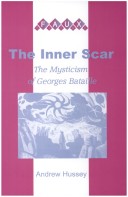Faux Titre
1 primary work
Book 189
Since his death in 1962, Georges Bataille has acquired the status of one of the most influential thinkers of the age. The fact that this reputation has been established by the likes of Michel Foucault, Jacques Derrida, Julia Kristeva and Philippe Sollers appears to confirm Bataille as a precursor of the postmodernist condition.
Few contemporary accounts of Bataille's thought have however engaged with those aspects of his thinking which are influenced by his interest in mysticism. This is an omission which is all the more striking given that Bataille considered his thought to be not only opposite to all philosophical traditions originating in the Enlightenment but also a form of speculation intricately related to the religious exigencies of the Christian Medieval period. This book presents the first major study in English of how Bataille's 'mystical' practices and texts interact with the outer worlds of politics, social relations and externalised discourse which Bataille sets up as the antipodes of his 'inner experience.' From this starting point, Andrew Hussey argues that the inner experience of limits in Bataille's work, the movement which he terms 'transgression', is, unlike the textual drams cherished by his postmodernist admirers, a non-metaphorical, even visceral event.
Few contemporary accounts of Bataille's thought have however engaged with those aspects of his thinking which are influenced by his interest in mysticism. This is an omission which is all the more striking given that Bataille considered his thought to be not only opposite to all philosophical traditions originating in the Enlightenment but also a form of speculation intricately related to the religious exigencies of the Christian Medieval period. This book presents the first major study in English of how Bataille's 'mystical' practices and texts interact with the outer worlds of politics, social relations and externalised discourse which Bataille sets up as the antipodes of his 'inner experience.' From this starting point, Andrew Hussey argues that the inner experience of limits in Bataille's work, the movement which he terms 'transgression', is, unlike the textual drams cherished by his postmodernist admirers, a non-metaphorical, even visceral event.
